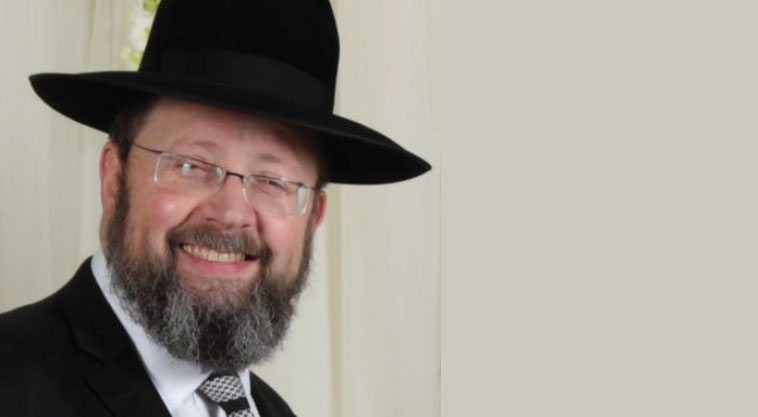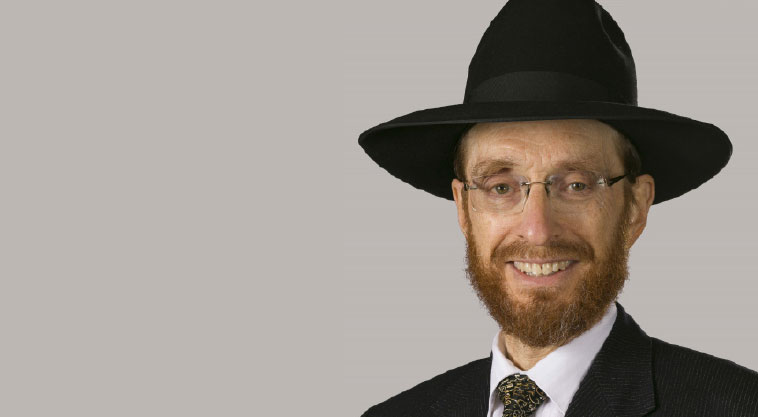Shared Space: Chapter 17


"A
nd that’s what makes this home — our yedid Reb Binyamin and his rebbetzin — such a chiddush. Not just the nedivus lev, but the hartz, the way they want to be meitiv.” The rosh yeshivah paused and played with a bottle cap, collecting his thoughts before continuing.
Benjy Halb sat at the head table with the other mechutanim, looking down. Kivi could detect the discomfort in the tilt of his father-in-law’s head. It was the way Benjy always looked when people were praising him.
The sheva brachos — the finale to a long week — was typical of his in-laws, Kivi thought. “There’s a theme,” he’d told Malky, “and I figured it out. It’s ‘We’re the Halbs, we have nothing to prove to anyone.’ ”
True to form, it was classy, low-key and warm. Radzvil Simcha Hall, Waulkner Caterers, the chassan and kallah there precisely on time.
The rosh yeshivah spoke first, reflecting on his long-standing relationship with the Halbs — of course those values had been transmitted to their children, the tayere mechutan Reb Shimon, the new couple had role models to learn from, baruch Hashem.
Kivi looked down at his phone.
Malky: Hatzlachah, you’ll do great.
Thanks, he wrote back, making a nervous-face emoji.
His mother-in-law had called a month ago to ask him to speak at the sheva brachos they were hosting. “You’re always so funny Kivi, you can represent us.”
He was a speaker, it was true, but this was different.
Back in yeshivah, he’d been the unanimous choice to stand up at seudos preidah, tables covered with stale popcorn and bottles of off-brand soda, and gently tease the guests of honor. Later, at sheva brachos of friends, Kivi Denburger had been the one guy able to say a nice devar Torah and still remember the chassan’s dirah mishaps.
But this was the Halbs. Even without formal rules, Kivi knew he couldn’t be too anything. A few jokes was fine, but not a comedy show. A devar Torah was appropriate, but not shiur klali. Benjy had stopped him on the way in and said, “Kivi, you I can ask straight, please. It’s not about me. Shimmy is the mechutan.”
The Halbs weren’t speakers. This was Kivi’s chance.
At their last men’s night out, Karlinsky had been candid about the struggle of finding space within a wealthy family. “The first Pesach after my chasunah,” he confided, “I made the mistake of arranging a Chol Hamoed trip for everyone. On Succos, everyone was like, ‘Where are we going Shragi, nu? Where should we park? Does it include bungee jumping?’ I was the family event planner, all of the sudden, and my wife felt so good, I couldn’t understand why. It was because I was something. I existed. I wasn’t just a prop son-in-law anymore.”
Garfinkel looked up from his mushroom bisque. “That’s great, I wish that was my job. My wife once mentioned to my in-laws that I know wine, so now, every Yom Tov, my shver says, ‘Shuey, you go buy whatever, you know what’s good. I’m fine with Matuk Royal, ha ha, but you know what the oilam likes.’ Every simchah. Before Purim, all the shvoggers call me for advice, it’s like, they found what I’m useful for and it would be bal tashchis not to ask me.”
“Here’s a credit card, now get out of the way,” Sitman said. His laugh was hard. He was a son, not a son-in-law, and his father was also a son of wealth. It was more real to him than to the others.
“It’s like, at first you fall for it,” he continued. “You feel like there’s something special about you. Then you realize you’ve been marked and it’s too late. Do your thing, we’re so proud of you, go make a night kollel, go create a fund to get formula to poor babies in Eretz Yisrael, go invest in Bitcoin for all we care — just don’t touch the steering wheel.”
Now, as Kivi walked slowly toward the microphone and shtender, he had this thought. This would become his thing if he wasn’t careful: Kivi is the designated speaker. He knew he didn’t want that.
“My shver has never asked me anything,” he began. “He’s never made any demands from me. Not one. But tonight, he asked me not to speak about him.”
Soft laughter. Benjy Halb smiled graciously, trusting Kivi.
“The thing is, I can’t stand here and talk about Shimmy, the mechutan, and not point out how similar he is to Tatty. You’d think it’s his father, not his shver, the way they both react when they see a dog approaching….”
Waves of laugher. Benjy Halb beaming, See, my son-in-law can even tease me publicly.
“I mean, the first time it happened I got insulted, I was walking to shul with Tatty and suddenly he disappeared, I was in middle of a sentence, but eventually, I got used to it. The truth is, you can’t compare Shimmy to Tatty: Shimmy doesn’t wait for the dog to come close, if it’s two blocks down, he’s already AWOL. Bye bye.”
Shimmy was blushing with pleasure.
“The only thing faster than his takeoff is the way the kallah leaves a room if there’s a trace of lashon hara, that’s 0–60 in five seconds.” Kivi turned to the head table, like those professional speakers weaving from humor to substance.
“Record-breaking,” he said. “Almost as fast as Chevy’s sports car.”
Rolling laughter from all sides at the dig at the car his sister-in-law insisted on driving. He noticed Malky’s face and felt happy.
“The chassan, Eliyahu Meir, makes such a nice impression; you can see how serious he is, his chashuve friends.”
Kivi easily segued into a devar Torah. “The Kli Yakar in this week’s parshah says a beautiful thing.”
At the head table, Benjy Halb visibly relaxed.
(Excerpted from Mishpacha, Issue 722)
Oops! We could not locate your form.





